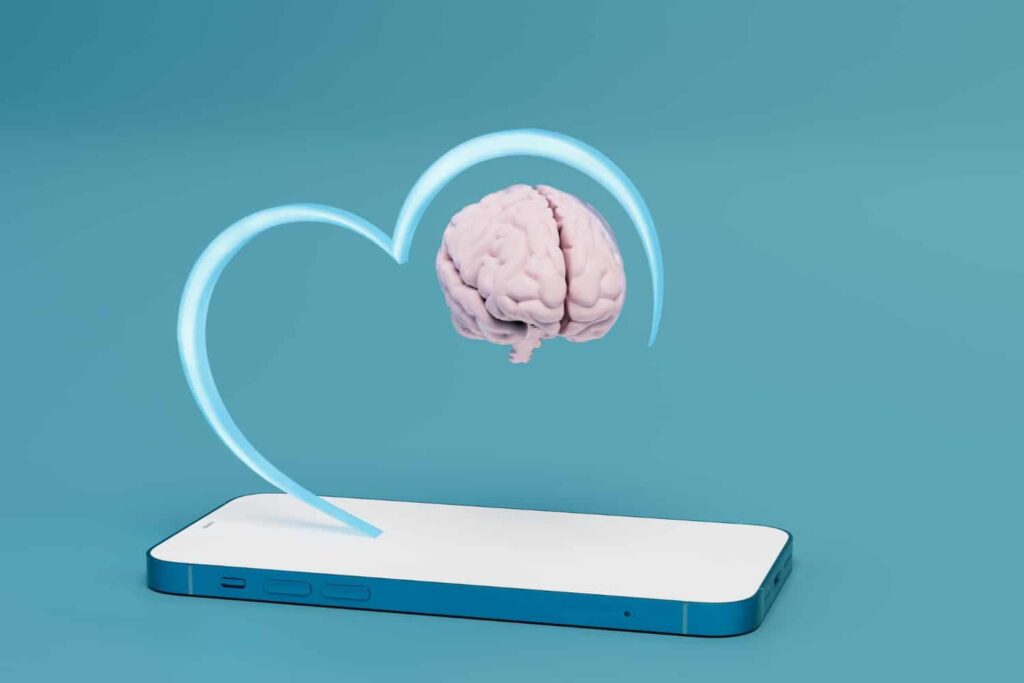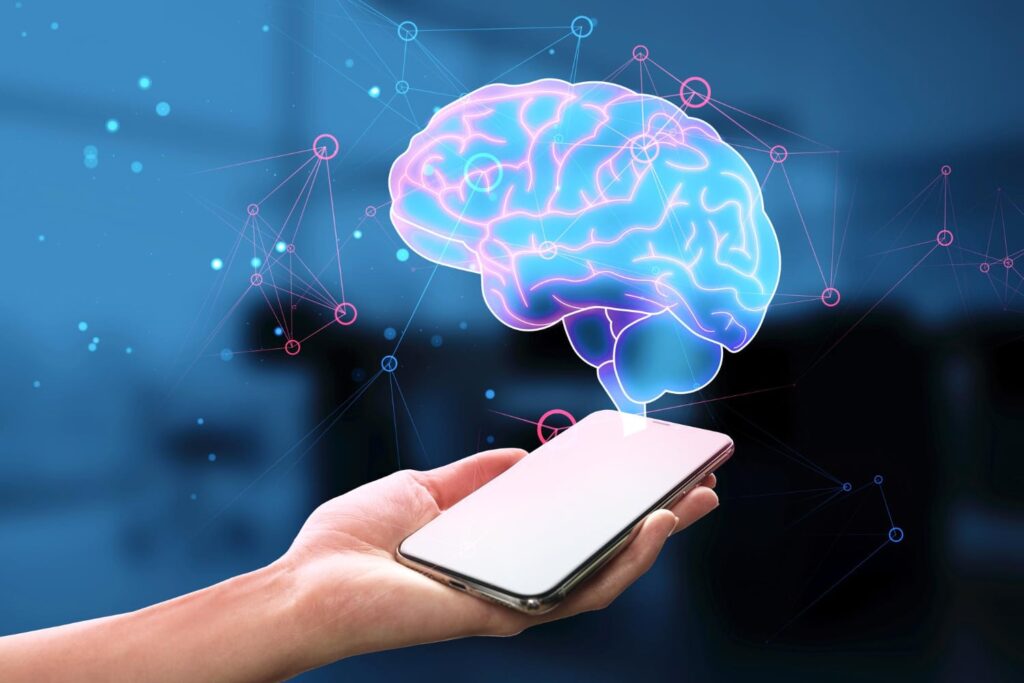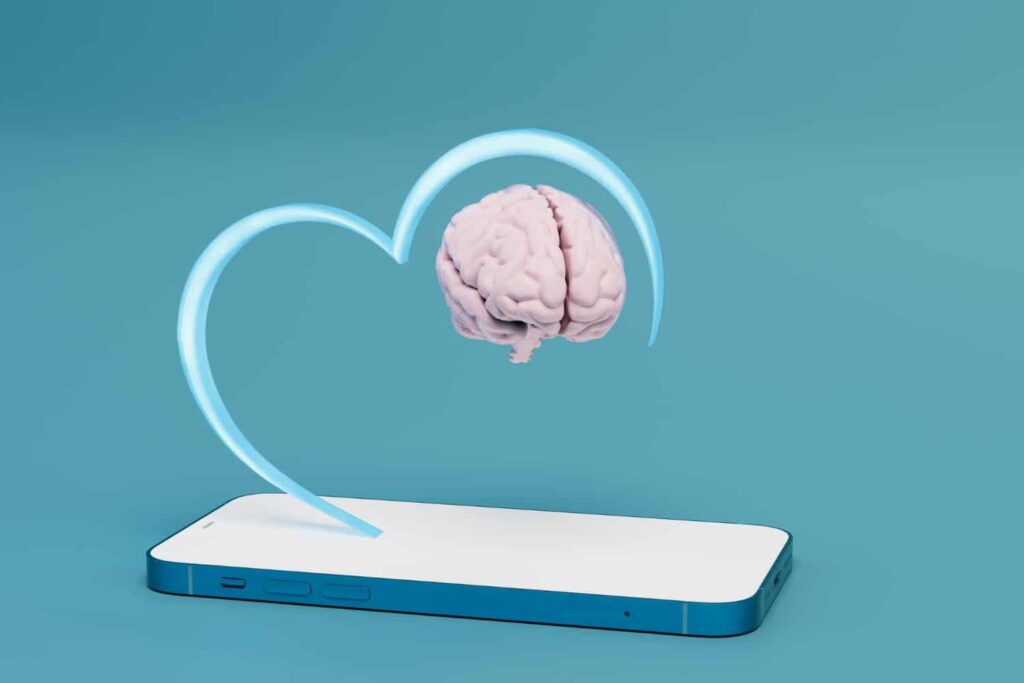4 min read
How Do Phones Affect Your Brain Cells?
How Do Phones Affect Your Brain Cells? In today’s digital age, our phones have become an extension of ourselves. Whether it’s checking emails, scrolling through social media, or using apps to organize our lives, these devices play a crucial role. But as our reliance on smartphones grows, so do questions about their effects on brain health. How do phones affect your brain cells? Are they simply tools of convenience, or could they be quietly influencing how our brains function and develop?
In this article, we’ll explore the scientific and medical insights into the relationship between smartphones and brain health, addressing concerns about memory, focus, emotional well-being, and brain cell development. Understanding these impacts can help us make informed decisions about our screen time and mental health.

The Science Behind How Phones Affect Your Brain Cells
Phones emit electromagnetic waves that interact with the body in various ways. While these waves are low-energy and generally considered safe, researchers are beginning to uncover their subtle impacts on the brain. For instance:
- Electromagnetic Wave Interaction: Studies suggest that prolonged exposure to phone radiation may alter the activity of neurons, the brain’s communication cells. Although the changes are small, the long-term implications remain under study.
- Brain Drain Hypothesis: A phenomenon observed in several experiments shows that simply having a phone nearby can lower cognitive capacity. This “brain drain” happens because the brain subconsciously focuses on potential notifications or messages, even when the device is silent.
Moreover, early studies into how do cell phones affect brain development suggest that younger, developing brains might be more vulnerable to these influences. Children and teenagers, whose brains are still forming crucial neural connections, may experience more pronounced effects.
Changes in Brain Chemistry: How Phones Affect Your Brain Cells
One of the most striking findings in recent years involves how phones can influence brain chemistry:
- Dopamine Loops: Every notification, like, or message triggers a release of dopamine—a neurotransmitter linked to pleasure and reward. This creates a loop of constant checking, leading to behaviors similar to addiction. Over time, this can desensitize the brain to natural dopamine levels, potentially affecting emotional regulation.
- Imbalance in Brain Chemicals: A study presented to the Radiological Society of North America found that heavy smartphone users exhibited imbalances in neurotransmitters that regulate mood and attention. These imbalances might explain the link between excessive phone use and anxiety or depression.
- Memory Impairment: Phones offer quick access to information, but this convenience can lead to over-reliance. Known as “digital amnesia,” this phenomenon occurs when people depend on their devices instead of their own memory, weakening cognitive recall abilities over time.
These changes underscore the importance of understanding how do cell phones affect brain development, especially in younger populations where these chemical shifts may hinder natural growth processes.
Cognitive and Emotional Effects: How Do Phones Impact Our Daily Lives?
Smartphones have revolutionized how we interact, learn, and entertain ourselves, but they also come with cognitive and emotional costs:
- Reduced Attention Span: Constant notifications and multitasking can fragment our focus, making it harder to concentrate on a single task. Research shows that frequent phone use trains the brain to seek out distractions, reducing productivity and mindfulness.
- Memory and Problem-Solving Declines: Studies indicate that the presence of a phone can decrease problem-solving abilities and working memory, as the brain relies on the device for answers rather than internal cognitive resources.
- Emotional Well-Being: Excessive screen time is linked to heightened feelings of stress and anxiety. The constant comparison facilitated by social media apps can lead to a decline in self-esteem and overall mental health.

What Part of the Brain Is Damaged From Social Media? How Do Phones Affect Your Brain Cells?
Social media platforms are designed to capture attention, but they may also have unintended effects on the brain:
- Prefrontal Cortex: This part of the brain, responsible for decision-making and impulse control, is particularly affected by the constant rewards and notifications of social media. Over time, users may experience difficulty managing impulses or focusing on long-term goals.
- Amygdala Activation: Emotional responses, such as fear and pleasure, are heightened by social media engagement. This can lead to an overactive stress response, making users more susceptible to anxiety.
- Impact on Teens: Young people are especially vulnerable. The reliance on social media for validation can disrupt the natural development of self-esteem and problem-solving abilities.
The question of how do cell phones affect brain development becomes even more significant when considering social media’s role in influencing not just individual users but entire developmental patterns in children and teenagers.
Physical Consequences: How Phones Affect Your Brain Cells
The physical toll of excessive phone usage extends beyond the brain to overall health:
- Disrupted Sleep Cycles: Blue light emitted by phones suppresses melatonin production, delaying sleep onset and reducing REM sleep—critical for memory and cognitive processing. This disruption can lead to brain fog, mood swings, and difficulty focusing.
- Increased Stress Levels: Notifications and constant connectivity can overload the brain, triggering a chronic stress response. Over time, this can harm both mental and physical health.
- Mental Fatigue: The constant engagement with digital devices can exhaust cognitive resources, leaving users mentally drained.
Are There Any Benefits of Phones on Brain Development?
While much of the discussion around phones focuses on their negative impacts, it’s important to recognize their potential benefits as well:
- Enhanced Multitasking Skills: Regular use of smartphones can help train the brain to juggle multiple tasks. Apps and tools that require switching between activities may improve adaptability in fast-paced environments.
- Access to Information: Smartphones serve as gateways to vast amounts of knowledge. For students and professionals, this immediate access can enhance learning and problem-solving when used responsibly.
- Cognitive Support: Tools like reminders, calendars, and task organizers can augment memory by allowing the brain to offload less critical information, freeing cognitive capacity for more complex tasks.
- Improved Communication Skills: Messaging platforms and video calls enable users to maintain relationships and develop interpersonal skills, particularly in long-distance scenarios.
However, these benefits depend on mindful usage and balance. The question of how do cell phones affect brain development remains complex, requiring users to weigh both the positive and negative outcomes of their habits.
How to Mitigate Negative Effects of Phones on Brain Cells
Protecting brain health from the potential adverse effects of smartphone usage involves adopting healthier habits. Here are actionable strategies:
- Limit Screen Time: Set daily limits for non-essential phone use. Use apps that track screen time to stay accountable.
- Create Phone-Free Zones: Designate areas, such as bedrooms or dining spaces, where phone usage is prohibited to encourage healthier behaviors.
- Reduce Blue Light Exposure: Use blue light filters or night modes, and avoid phone use at least an hour before bedtime.
- Practice Mindful Usage: Regularly assess why you’re using your phone. Are you seeking information, entertainment, or merely avoiding boredom? Awareness can help you make conscious choices.
- Engage in Offline Activities: Spend more time on hobbies, exercise, and face-to-face interactions to create a balanced lifestyle.
- Educate Young Users: For children and teens, monitor screen time and encourage activities that promote hands-on learning and creativity to offset the question of how do cell phones affect brain development.

Conclusion: How Do Phones Affect Your Brain Cells? and What You Can Do
The impact of smartphones on brain health is undeniable. While they offer unparalleled convenience and access to information, their overuse can disrupt sleep, impair cognitive abilities, and alter brain chemistry. Understanding how do phones affect your brain cells empowers users to make informed decisions about their screen time.
To maintain brain health:
- Limit phone usage, especially before bedtime.
- Foster healthier habits like mindfulness and offline engagement.
- Educate yourself and others on the balance between benefits and risks.
If you’re concerned about the effects of phone usage on your cognitive or emotional well-being, consult Neurology Mobile. Our experts specialize in assessing brain health and providing actionable advice to help you lead a balanced digital life.
Learn more about our services at Neurology Mobile.
FAQs About How Do Phones Affect Your Brain Cells?
1. Can phones cause permanent brain damage?
There’s no conclusive evidence that phone usage causes permanent brain damage. However, excessive use can lead to issues like disrupted sleep, reduced cognitive function, and mental fatigue, which may have long-term effects if not addressed
2. How do phones affect brain cells?
Phones can influence brain cells by altering brain chemistry through constant dopamine release, leading to addictive behaviors. Additionally, electromagnetic radiation from phones may impact neuronal activity, though more research is needed on long-term effects..
3. How do cell phones affect brain development in children and teens?
Developing brains are more vulnerable to the effects of phone use. Prolonged screen time and reliance on digital devices can interfere with neural growth, emotional regulation, and the development of problem-solving skills.
4. How much screen time is too much?
Experts recommend limiting recreational screen time to 2 hours per day for adults and 1 hour per day for children. Beyond these limits, excessive phone use may contribute to issues such as digital addiction and reduced attention spans.
5. Is social media worse for brain health than other apps?
Social media can have a more significant impact on brain health due to its design to trigger dopamine loops and reward systems. This can lead to addictive behaviors and heightened stress or anxiety compared to productivity or educational apps.
